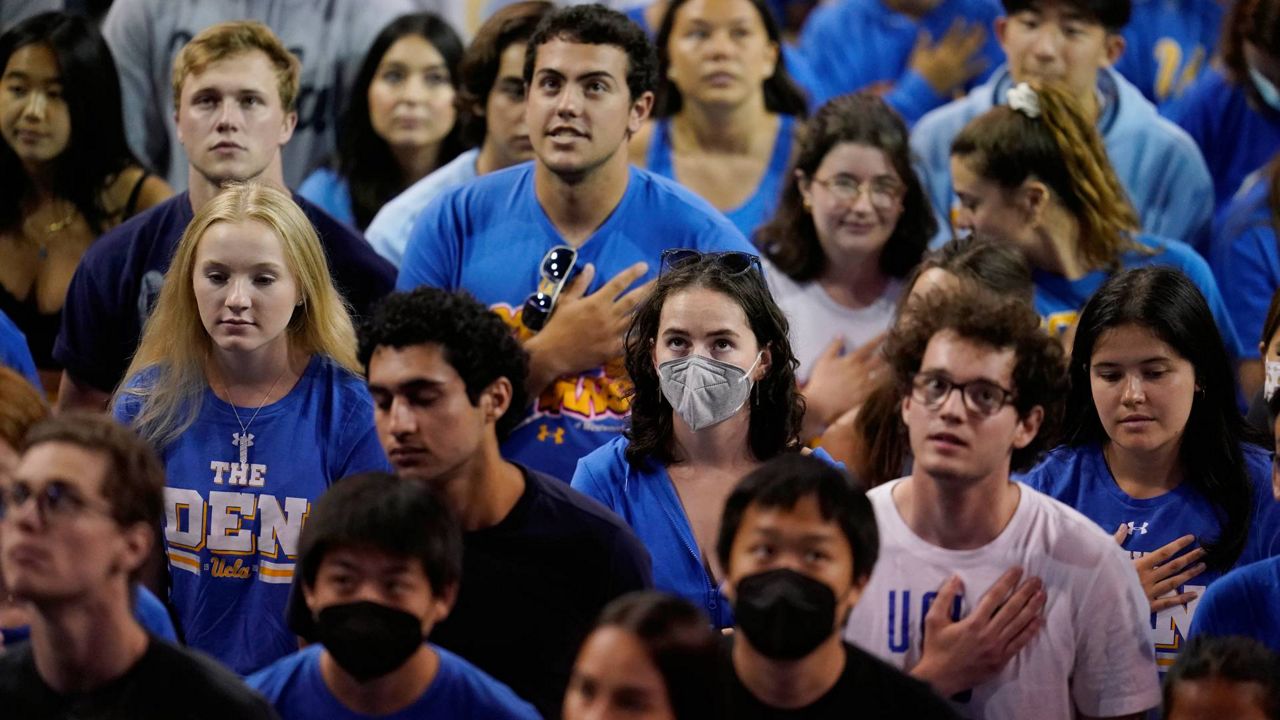LOS ANGELES (CNS) — One day after discussing the matter behind closed doors, the University of California Board of Regents Thursday directed system president Michael Drake and his staff to prepare a full assessment of the impacts UCLA's planned move from the Pac-12 Conference to the Big Ten will have on the UC as a whole.
The report is expected to be presented to the regents and the governor's office by Aug. 17.
According to the UC, the report will focus on:
- the effect the move will "have on UCLA and other UC campuses' culture, operations, and finances"
- the impact of the change on "UCLA's student athletes, including how the campus plans to address issues related to travel, competition schedules, and academic support"
- the regents' "delegations of authority as it pertains to athletics operations and recommendations on any updates in policy deemed necessary to ensure proper oversight of major athletics-related decisions"
The demand is the latest fallout from the announcement by UCLA and USC — arguably the top athletic programs in the conference — that they will leave the Pac-12 and enter the Big Ten starting in 2024.
The move is expected to cause a major financial loss to the remaining teams in the conference, including Berkeley, which will be the only remaining UC school.
UCLA and USC, however, stand to see a major boost in revenue from media-rights deals in the Big Ten, which will become a coast-to-coast conference including some of the nation's most prominent athletic programs. But the remainder of the Pac-12 will likely suffer major financial losses thanks to the loss of two of the conference's top attractions.
In announcing the planned move, UCLA officials noted that the financial boost from the Big Ten will allow the university to maintain all of its athletic programs, some of which were believed to be in financial jeopardy absent a major influx of cash. The university also noted a major benefit for student-athletes, likely allowing them to obtain more lucrative "name, image and likeness" deals.
"Additionally, it means enhanced resources for all of our teams, from academic support to mental health and wellness," UCLA Chancellor Gene Block and Athletics Director Martin Jarmond said in a statement announcing the move last month. "And although this move increases travel distances for teams, the resources offered by Big Ten membership may allow for more efficient transportation options. We would also explore scheduling accommodations with the Big Ten that best support our student-athletes' academic pursuits."
USC President Carol L. Folt, in a statement of her own, said, "With the Big Ten, we are joining a storied conference that shares our commitment to academic excellence and athletic competitiveness, and we are positioning USC and our student-athletes for long-term success and stability amidst the rapidly evolving sports media and collegiate athletics landscapes. We are delighted to begin this new chapter in 2024."
Gov. Gavin Newsom last week slammed the move, telling Fox11 he was never given any advance notice of the move, despite being an ex-officio member of the Board of Regents. He noted that he found out about the move by reading it in the media.
"I read about it. Is it a good idea? Did we have a chance to discuss the merits (of the decision)?" Newsom told a local news outlet. "I'm not aware anyone did. So it was done in isolation. It was done without regental oversight or support. It was done without any consideration to my knowledge."
Newsom doubled-down on his criticism Wednesday, when he attended the UC Board of Regents closed-door meeting in San Francisco to discuss the issue and possible steps that might be taken to intervene. The governor issued a statement saying a public university's "first duty ... is to the people — especially students."
"UCLA must clearly explain to the public how this deal will improve the experience for all its student-athletes, will honor its century-old partnership with UC Berkeley and will preserve the histories, rivalries and traditions that enrich our communities," he said.










